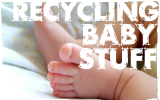We’re having a book themed week here on Recycle This – and on my simple living site, The Really Good Life too. Read about how to reuse, recycle or upcycle old books, damaged books and notebooks/jotters – and see inspiring how-tos & ready-to-buy items using books. Or on TRGL, read about my favourite simple living/growing/making/cooking books – and give me your suggestions for simple living/growing/making fiction (please!)
 As good greenies, we all know that it’s better to REDUCE in the first place before having to think about reusing or recycling so I thought I’d ask a quick “reduce” question — how do you reduce the amount of new (as in brand new, just printed) books you buy? Any tricks to avoid the temptation or favourite ways to buy them second(third/fourth)-hand?
As good greenies, we all know that it’s better to REDUCE in the first place before having to think about reusing or recycling so I thought I’d ask a quick “reduce” question — how do you reduce the amount of new (as in brand new, just printed) books you buy? Any tricks to avoid the temptation or favourite ways to buy them second(third/fourth)-hand?
If you don’t buy books in general, but still read regularly, how do you do that?
And if you do buy books, how do you pass on your old ones so that others can enjoy them too?
I suspect some of these answers are obvious – for example, I use our local library regularly and also browse the shelves in charity shops* – but I wondered if anyone had any less common ideas that might be new to other people. I only recently discovered Abebooks – I wonder if there are any other gems I’m missing out upon!
Let us know your book-buying/acquiring secrets in the comments below!
* in that order: if I go to the library before any shopping expeditions, the “I need new input” urge has already worn off a bit and my bag is generally pretty full/heavy so I want to browse and definitely buy less stuff. Libraries are fab!
Categories: reduce this
Posted by louisa
on 14 October 2011
We’re having a book themed week here on Recycle This: check out our other posts on reusing & recycling books in general, damaged books in particular, and some of our favourite how-tos & handmade crafts to buy using old books.
 I’m both a scribbler – both writing & drawings – and a hoarder, which means I have a whole lot of old notebooks, exercise books and jotter containing school/college or work notes, half finished stories and really bad little sketches. I do like flicking through them, remembering different projects & times of my life, but at the same time, I realise that they’re mostly just clutter.
I’m both a scribbler – both writing & drawings – and a hoarder, which means I have a whole lot of old notebooks, exercise books and jotter containing school/college or work notes, half finished stories and really bad little sketches. I do like flicking through them, remembering different projects & times of my life, but at the same time, I realise that they’re mostly just clutter.
Sometimes I’m good and throw out a bunch of them – removing any clumps of blank pages for use as scrap and, in the case of ones with polypro plastic covers, keep the covers for reuse too (mostly as covers for homemade scrap paper notebooks). Since the ones I’ve had are usually spiral bound or simple stapled notebooks, the used papers can go into recycling, the compost bin or for use as firestarting tinder without any worries about binding glue. But it’s so hard to destroy them. All those hours of work creating the sentences or pictures contained within!
Does anyone have any ideas for reusing or upcycling such notebooks instead of just recycling/burning/composting them? Anyone done anything crafty with kids’ school books to preserve their work?
Categories: household, items, office, paper & stationery
Posted by louisa
on 12 October 2011
We’re having a bit of a book-themed week here on Recycle This and I thought I’d share with you some of my favourite reusing/recycling ideas – inspiration, how-tos and thing to buy if you’re not the crafty type yourself.
As I mentioned yesterday when talking about damaged books, it’s easier to revamp or reuse hardback books for practical purposes because they’re that bit tougher. They can be used for everything from statement bed headboards to “floating book” shelves.
On a smaller scale, they can be turned into purses/handbags, clocks, self-supporting photo frames, notebooks, iPhone charging units – and even table legs.
@AlishaAnnn told us about the table below on Twitter yesterday: “Table legs from recycled books with a metal rod through. They are sturdy and spin. Old barn window on top.” Great recycling!
That’s not to say paperback books aren’t without their reuses – their relative flexibility is an asset for things like this card wallet:
Other people prefer to use the pages of old books: either as art in themselves or as canvas for printing/painting, to decorate greeting cards, envelopes, super retro bunting or, on more elaborately, this fantastic paper wreath.
And BellwethersDB on Twitter had a good few ideas for using the pages too: “Tear out the pages and print vintage images on them and frame them! So pretty”, “Tear the pages and mod podge them onto old ornaments, add glitter and a ribbon. Voila! A “new” ornament!” and “Paper beads! Then paint them and string them on ribbon.” @_jennifergrace_ also tweeted us to say she’d used book pages as the background for welcome cards & name badges for a hen weekend, to make her own ideas notebook and as part of a bigger art project.
And speaking of pages, this desk tidy is made with a phone book but any oversized book – old annuals or craft books – would would just as well.
Finally, Alice in Blogland sent us a link to this fab recycling books for booklovers story, such amazingly intricate work!
Have you seen any other great example of reusing, recycling or upcycling of old or damaged books? If so, let us know in the comments!
Categories: art & crafts using recycled stuff, hobbies, household, paper & stationery
Posted by louisa
on 11 October 2011
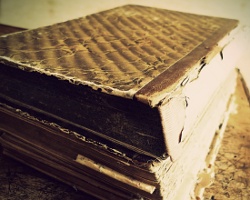 As I mentioned on The Really Good Life earlier today, I’m having a bit of an unplanned book buying month this month so I’ve decided to have an equally hitherto unplanned book themed week on both sites :)
As I mentioned on The Really Good Life earlier today, I’m having a bit of an unplanned book buying month this month so I’ve decided to have an equally hitherto unplanned book themed week on both sites :)
Thinking about books reminded me about an email I received a while ago (but can’t find at the moment) asking about whether water damaged books can be recycled. Even though they’re nearly entirely paper, the glue used to bind books can sometimes cause problems along the recycling chain so don’t assume they can be added to normal paper recycling bins – check with your local council/the company that collects the bin first. They can be composted though if you have a compost heap at home – tear them up and add alongside plenty of “greens” if you want them to rot down quicker. On a similar destructive vein, my friend Strowger assures me they burn very well, for a long time, in woodburning stoves, although I’m not sure I could bring myself to burn even a damaged book!
Most people I know get clear out their books by giving them to charity shops – but most charity shops, particularly large chain ones, only want them in a very good, sellable condition so they can charge a decent amount for them. People who do carboot sales or run adhoc jumble sales etc are often slightly less discerning (since they generally have less overheads so can sell them cheaper to offset the condition) – I regularly see boxes of books given away on Freecycle/Freegle labelled as “ideal for carbooters” so that might be an option if the books are still readable and you don’t fancy selling them yourself.
Hardback books – particularly ones with interesting, pretty or retro covers – can be recycled into folders for papers or notebooks (I’ll post some links to how-tos in a “upcycling books round-up” tomorrow). Other people scavenge undamaged pages from old books to use for papercrafts or artwork.
Anyone got any particular reuse, recycling or upcycling suggestions for damaged books, or their parts?
Categories: hobbies, household, items, paper & stationery
Posted by louisa
on 10 October 2011
It’s been a while since I’ve done a “links round-up” post about some of the things that I’ve been emailed or spotted around the greater internet recently so … here goes!
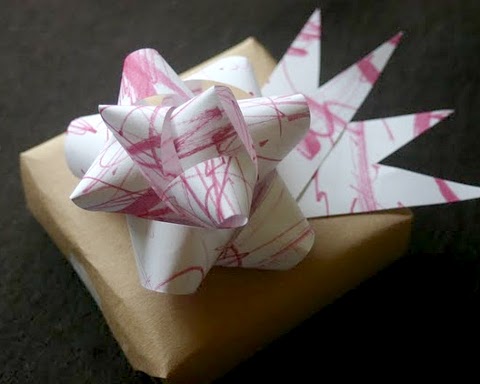
- With the major gift giving time of the year looming in the near-distance, I love this idea of reusing colourful children’s pictures to make gift bows instead of using generic plastic ones. Of course the same idea can be applied to any old paper – as the tutorial shows black-on-white newspaper text looks pretty cool too.
- I’m always a sucker for stuff made with drinks cans but these flowers are rather cute – I especially like the painted ones.
- Tinplategirl emailed recently her new tutorials site about working with tinplate – the smooth heavier-weight metal from various large tins & cans. The site includes a number of free videos introducing the craft – where to find the materials and how to work with them – and how-to PDFs for making all sorts of things (some free, some costing up to $9.95). A great resource for people wanting to move on from working with the more malleable drinks can metal.
- And speaking of large tins, this tiered unit made from old biscuit/chocolate tins has been around for a while now but I thought it was worth mentioning because it’s a lot of fun and useful.
- Another thing that’s a bit old but feels newly relevant given the sudden switch to autumn this week: how-to recover an umbrella frame. Great for revamping a brolly or fixing it if it gets torn – double up your green points by using old fabric (an old tent? old synthetic clothes?) for the umbrella and reclaiming the best bits of the original fabric for other craft projects (a water resistant swimming bag? or to make foam bath cushion?)
- Oh, and if you haven’t seen it, do check out WeUpcycle.com, which started as a 30 day/30 upcycled things project but is now a wider collection of upcycling ideas. No how-tos but lots of inspiring, pretty pictures.
Have you seen any fun or interesting reusing or recycling projects recently? Or have you got anything you’d like to show off of your own creation? Do leave a comment below!
Categories: art & crafts using recycled stuff, household, packaging, paper & stationery
Posted by louisa
on 4 October 2011
 As good greenies, we all know that it’s better to REDUCE in the first place before having to think about reusing or recycling so I thought I’d ask a quick “reduce” question — how do you reduce the amount of new (as in brand new, just printed) books you buy? Any tricks to avoid the temptation or favourite ways to buy them second(third/fourth)-hand?
As good greenies, we all know that it’s better to REDUCE in the first place before having to think about reusing or recycling so I thought I’d ask a quick “reduce” question — how do you reduce the amount of new (as in brand new, just printed) books you buy? Any tricks to avoid the temptation or favourite ways to buy them second(third/fourth)-hand?


 I’m both a scribbler – both writing & drawings – and a hoarder, which means I have a whole lot of old notebooks, exercise books and jotter containing school/college or work notes, half finished stories and really bad little sketches. I do like flicking through them, remembering different projects & times of my life, but at the same time, I realise that they’re mostly just clutter.
I’m both a scribbler – both writing & drawings – and a hoarder, which means I have a whole lot of old notebooks, exercise books and jotter containing school/college or work notes, half finished stories and really bad little sketches. I do like flicking through them, remembering different projects & times of my life, but at the same time, I realise that they’re mostly just clutter.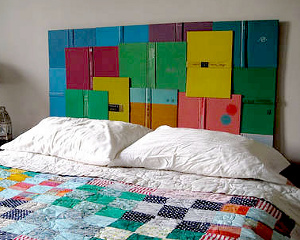

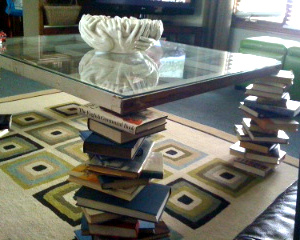
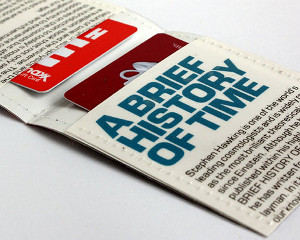
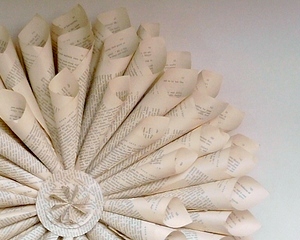
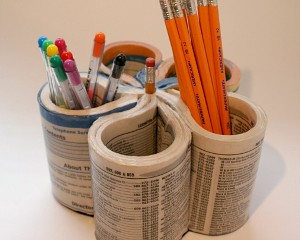
 As I mentioned on
As I mentioned on 
